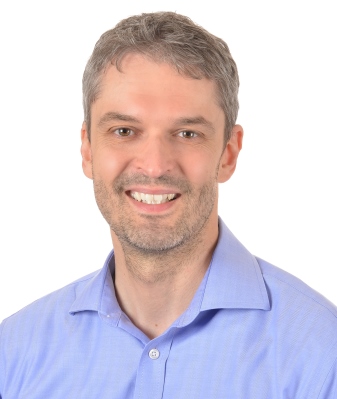Mindful Project Management Helps Deal with Uncertainty
Interview with Elmar Kutsch
Author, Project Manager, Associate Professor
Cranfield School of Management
Bedfordshire, UK

Interviewed by Spring
Journalist, Project Management Review: PMR (China)
International Correspondent, PM World Journal
Introduction to the interviewee
Elmar Kutsch is Associate Professor in Risk Management, Cranfield School of Management, UK. Previously, he held a variety of commercial and senior management positions within the Information Technology (IT) industry. As a passionate skydiver and former project manager, his interests, both privately and professionally, revolve around the management of risk and uncertainty. He authored the book The Art of Organisational Resilience: Revisiting the Fall of France in 1940 and Mindful Project Management.
Interview
Part Ⅰ Mindful Project Management
Q1. Why did you and Mark Hall write the book Mindful Project Management? To be brief, what is the book mainly about?
Elmar Kutsch (Kutsch): The profession of project management is defined by frameworks that promote deterministic, probabilistic, reductionist, best case thinking. In other words, the current focus and obsession with planning predispose us, project managers, to see situations in a particular way; they anchor our thoughts into our past’s successes. As a consequence, we are less likely to detect and prepare ourselves for future failures.
Mindful project management takes us beyond the tangible and the measurable aleatoric uncertainty and makes us embrace the truly unknown and unknowable epistemic uncertainty. In contrast to conventional project management characterized by processes, tools and techniques, mindful project management is all about fostering situated human cognition.
Q2. What does “Mindful Thinking” mean? What application does it have in project management?
Kutsch: To quote Ellen Langer, “a mindful response to a particular situation is not an attempt to make the best choice from among available options but to create options.” In other words, whereas conventional project management makes us “recycle” past-informed situations, decisions and routines, a mindful approach to managing a project is to notice, interpret, prepare, contain, and recover from novel situations, to manage a project beyond the risk horizon. As much as conventional project management relies on hindsight, mindful project management fosters foresight.
Part Ⅱ Resilient Project Managers
Q3. How do you define “Resilience”? What are qualities of resilient project managers?
Kutsch: Although there is no unified definition of Resilience in literature, the one most aligned to mindful project management is one of bouncing back and bouncing forward.
The qualities of a resilient project manager is not to give in to the temptation to manage a project on “autopilot”. In other words, not just to spend most of our attention on planning for a best-case scenario and mindlessly sticking to a plan, no matter how much uncertainty, complexity, volatility and ambiguity makes the plan obsolete.
Resilient managers question and challenge our hardwired assumptions that come with the excessive rigidity in thinking by exclusively focusing on the activity of best-case planning. By thinking beyond the risk horizon comes building up robustness and adaptability to contain and recover from the unexpected if necessary. In essence, the primary job of a resilient project manager is to build up physical but foremost social redundancies that can be activated quickly once the unexpected starts to materialize and to set the scene for one of the key skills in project management: team improvisation.
Q4. Would you please elaborate on “team improvisation”?
More…
To read entire interview, click here
Editor’s note: This interview was first published in PMR, Project Management Review magazine, China. It is republished here with the permission of PMR. The PM World Journal maintains a cooperative relationship with PMR, periodically republishing works from each other’s publications. To see the original interview with Chinese introduction, visit PMR at http://www.pmreview.com.cn/english/
How to cite this interview: PMR (2022). Mindful Project Management Helps Deal with Uncertainty: Interview with Elmar Kutsch; Project Management Review; republished in the PM World Journal, Vol. XI, Issue VII, July. Available online at https://pmworldlibrary.net/wp-content/uploads/2022/07/pmwj119-Jul2022-Spring-Interview-with-Elmar-Kutsch.pdf
About the Interviewer

Spring
Beijing, China
![]()
Spring (English name), Bachelor’s Degree, graduated from the English Department of Beijing International Studies University (BISU) in China. She is now an English-language journalist and editor working for Project Management Review (PMR) Magazine and website. She has interviewed over sixty top experts in the field of project management. Before joining PMR, she once worked as a journalist and editor for other media platforms in China. She has also worked part-time as an English teacher in training centers in Beijing. Beginning in January 2020, Spring also serves as an international correspondent for the PM World Journal.
For work contact, she can be reached via email yuyanjuan2005@163.com or LinkedIn https://www.linkedin.com/in/yanjuanyu-76b280151/.
To view other works by Spring, visit her author showcase in the PM World Library at https://pmworldlibrary.net/authors/yu-yanjuan/









